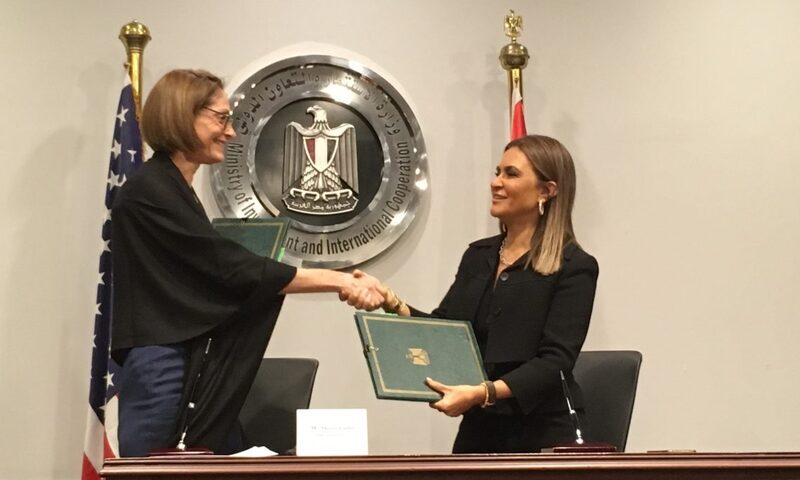
EU adopts new rules to significantly cut packaging waste with re-use targets
The European Union has formally adopted a regulation on packaging and packaging waste. The new ...

The US committed an additional $16.5 million to support joint US-Egypt priorities in basic education and agribusiness.
This commitment falls within the framework of two amended bilateral assistance agreements, signed by Egypt and the United States, through the U.S. Agency for International Development (USAID).
The deals demonstrate the continued support of the American people to development in Egypt. The agreements will provide Egyptian youth with access to quality education and help Egyptian farmers access global markets.
“These agreements in basic education and agribusiness reflect our strong and enduring partnership with the Ministry of Investment and International Cooperation, and the U.S. Government’s commitment to the people of Egypt.” said USAID Mission Director to Egypt Sherry F. Carlin.
Through the basic education bilateral assistance agreement, USAID programs support the Ministry of Education’s education reform agenda and align the education system more closely with the needs of a modern economy. Programs train teachers to better help students improve their critical thinking and practical skills, particularly in the important fields of science, technology, engineering and mathematics. Programs also strengthen literacy among children in community schools by working with mothers and women’s groups to support reading.
The agribusiness bilateral assistance agreement helps farmers in Upper Egypt and the Nile Delta grow marketable crops that meet international standards for export. Through agribusiness programs, USAID works with Egyptian farmers and food processors to connect to domestic and international markets, to access finance, and to adhere to food and safety practices. Programs also modernize the food technology and delivery systems used by Egyptian agribusinesses.
For four decades, the American people have partnered with the people of Egypt to bolster self-reliance, foster stability, promote economic growth, and reduce poverty. USAID’s program in Egypt, totaling over $30 billion since 1978, promotes a healthy, educated, and employed population.
The European Union has formally adopted a regulation on packaging and packaging waste. The new ...
Inaugurating the Abydos Solar Power Plant in the Upper Egypt governorate of Aswan represents a ...
Businesses that fail to adapt to climate risks like extreme heat could lose up to ...


اترك تعليقا